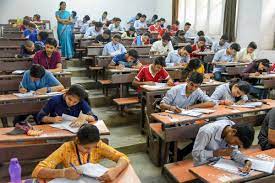
Coaching major UPSC Competitive Exams in Shaping Student Careers
In the dynamic and diverse landscape of India, the UPSC Civil Services Examination (CSE) stands as an iconic beacon, guiding the aspirations of thousands towards the pinnacle of public service. This essay explores the imperative of the UPSC CSE, elucidates its detailed pattern, the organizational intricacies, highlights eligibility criteria, discusses prizes, the syllabus and recommended study materials, and concludes with valuable tips for aspirants navigating the challenging yet rewarding journey.
Importance of the UPSC Civil Services Examination
The UPSC CSE is often hailed as the gateway to India’s premier administrative and diplomatic services. It serves as a filtration system, selecting individuals who possess not just academic excellence but also a comprehensive understanding of governance, ethical values, and a commitment to public service. The examination is the bedrock for recruiting civil servants who play pivotal roles in shaping and implementing policies, fostering national development, and addressing the diverse needs of a complex society.
1. Diverse Opportunities:
The UPSC CSE opens doors to a multitude of prestigious services, including the Indian Administrative Service (IAS), Indian Police Service (IPS), Indian Foreign Service (IFS), and various Group A and Group B services. This diversity ensures that successful candidates can choose career paths aligned with their interests, be it administration, law enforcement, diplomacy, or other specialized domains.
2. Leadership Development:
The rigorous selection process and comprehensive syllabus of the UPSC CSE aim not only to assess candidates’ knowledge but also to gauge their analytical abilities, decision-making skills, and ethical grounding. Successful candidates emerge not only as subject matter experts but as leaders equipped to navigate the complexities of governance and contribute meaningfully to the nation’s progress.
3. Nation-Building Mandate:
By selecting individuals with a deep sense of duty and a commitment to public service, the UPSC CSE ensures that the country is endowed with a cadre of administrators and leaders who are dedicated to the principles of justice, equity, and development. These individuals play pivotal roles in implementing policies, addressing societal challenges, and fostering inclusive growth.
Detailed Pattern of the UPSC Civil Services Examination
The UPSC CSE is conducted in three successive stages:
1. Preliminary Examination:
- Objective-Type Questions: The Preliminary Examination consists of two papers – General Studies Paper I and General Studies Paper II (CSAT). Both papers contain multiple-choice questions.
- Qualifying Nature: The marks obtained in Paper II (CSAT) are not considered for the candidate’s merit but are crucial for qualifying for the Mains Examination.
2. Mains Examination:
- Subjective Answers: The Mains Examination is a written examination that assesses candidates’ comprehensive understanding of diverse subjects.
- Nine Papers: It includes nine papers, of which seven are considered for merit ranking. These include Essay, General Studies I to IV, Optional Paper I, and Optional Paper II.
3. Interview (Personality Test):
- Face-to-Face Interaction: The Interview stage involves a personality test where candidates are evaluated based on their communication skills, leadership qualities, and ethical judgment.
- Final Ranking: The marks obtained in the Mains Examination and the Interview determine the final ranking of candidates.
Organizers, Reputation, and Affiliations
The Union Public Service Commission (UPSC) is the apex body responsible for conducting the Civil Services Examination. Established in 1926, the UPSC operates under the constitutional mandate to recruit personnel for various central government services. Its reputation for fair, transparent, and merit-based selection has made it the standard-bearer for competitive exams in India.
Independence and Autonomy:
The UPSC operates independently, free from external influences, ensuring that the selection process remains unbiased and adheres to the highest standards of integrity. This autonomy contributes significantly to the credibility and trustworthiness associated with the UPSC CSE.
Affiliations with Government Ministries:
While the UPSC is an independent constitutional body, it collaborates closely with various government ministries and departments to align the examination process with the evolving needs of governance. This ensures that the selected candidates are equipped to address contemporary challenges.
Global Recognition:
The UPSC CSE has earned global recognition as one of the most challenging and prestigious competitive exams. Its reputation has transcended national borders, attracting applicants from diverse backgrounds who aspire to contribute to India’s development.
Eligibility Criteria, Prizes, and Scholarships
Eligibility Criteria:
- Educational Qualification: A candidate must hold a degree from a recognized university or possess an equivalent qualification. Final-year students awaiting results are also eligible to apply.
- Age Limit: The candidate’s age must be between 21 and 32 years as of August 1st of the examination year, with certain relaxations for specific categories.
Prizes and Scholarships:
- Monetary Benefits: While there are no monetary prizes associated with the UPSC CSE, successful candidates are rewarded with prestigious positions and opportunities for professional growth.
- Training and Development: Selected candidates undergo rigorous training at premier academies like the Lal Bahadur Shastri National Academy of Administration (LBSNAA), shaping them into well-rounded administrators.
Syllabus, Reference Books, and Study Materials
Syllabus Overview:
The UPSC CSE syllabus is extensive, covering diverse subjects to assess candidates’ knowledge and aptitude. The syllabus includes topics such as Indian polity, history, geography, economics, science and technology, ethics, and an optional subject chosen by the candidate.
Reference Books and Study Materials:
- Standard Texts: Aspirants often refer to standard textbooks and reference materials to cover the vast syllabus. NCERT books are recommended for building a strong foundation in various subjects.
- Subject-Specific Guides: Numerous subject-specific guides, authored by experts, provide in-depth coverage of individual topics. These guides often include practice questions and previous years’ papers.
Tips for Aspirants
The journey of preparing for the UPSC CSE is challenging, requiring a blend of dedication, strategic planning, and resilience. Aspirants can benefit from the following tips:
1. Understanding the Syllabus:
- Comprehensive Grasp: Develop a thorough understanding of the syllabus to identify key areas and allocate time accordingly.
- Prioritization: Prioritize subjects based on your strengths and weaknesses.
2. Consistent Revision:
- Regular Review: Regularly revise topics to reinforce understanding and retain information.
- Strategic Revision: Focus on weak areas during revision and allocate more time to challenging subjects.
3. Practice through Previous Years’ Papers:
- Exam Familiarity: Solve previous years’ papers to become familiar with the exam pattern and question types.
- Time Management: Practice time-bound answering to improve speed and accuracy.
4. Mock Tests and Simulated Environments:
- Real-Time Experience: Take regular mock tests to simulate exam conditions and assess your performance.
- Identify Weaknesses: Analyze mock test results to identify weaknesses and areas for improvement.
5. Balanced Approach to Optional Subjects:
- Interest Alignment: Choose an optional subject aligned with your interests and academic background.
- Holistic Preparation: Dedicate sufficient time to optional subjects to ensure a well-rounded preparation.
6. Current Affairs Mastery:
- Daily Reading: Stay updated with current affairs by reading newspapers, magazines, and online sources regularly.
- Consistent Review: Regularly revise current affairs to avoid last-minute cramming.
7. Ethics and Integrity Focus:
- Value-Based Learning: Emphasize ethical values in your preparation and responses.
- Case Studies and Examples: Incorporate real-life examples and case studies to substantiate your answers.
8. Physical and Mental Well-Being:
- Healthy Lifestyle: Maintain a healthy lifestyle with adequate sleep, regular exercise, and a balanced diet.
- Stress Management: Practice stress-management techniques to cope with the pressure of preparation.
In conclusion, the UPSC Civil Services Examination is not merely an exam; it is an odyssey that transforms aspirants into leaders, administrators, and torchbearers of governance. Its importance lies in its ability to identify individuals with the intellect, values, and commitment needed to contribute meaningfully to the nation.
The detailed pattern, reputation, eligibility criteria, prizes, syllabus, and study materials associated with the UPSC CSE provide a roadmap for aspirants. As they navigate this journey, armed with knowledge, dedication, and resilience, aspirants not only prepare for an exam but also embark on a transformative odyssey that shapes their destinies and contributes to the nation’s progress.
In the words of Jawaharlal Nehru, “You are now at the historic moment of the nation’s destiny. Our future is in your hands.” The UPSC CSE, with its multifaceted dimensions, plays a pivotal role in shaping the leaders who will carry this destiny forward. Aspirants, equipped with the right approach and determination, can navigate the challenges of this odyssey and emerge not just as successful candidates but as agents of positive change in the complex tapestry of India’s governance.
By: Samarth Kharbanda
Write and Win: Participate in Creative writing Contest & International Essay Contest and win fabulous prizes.


